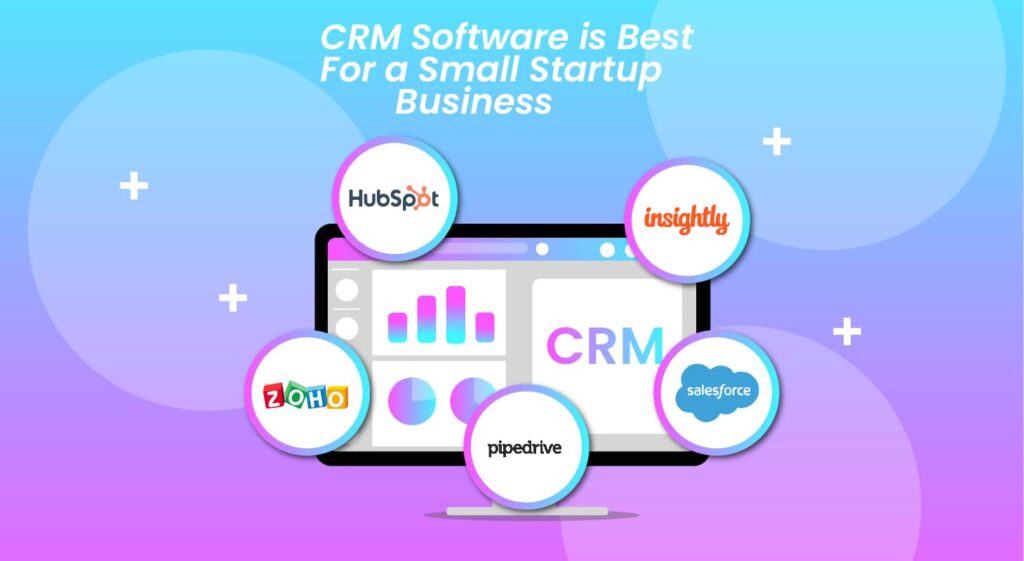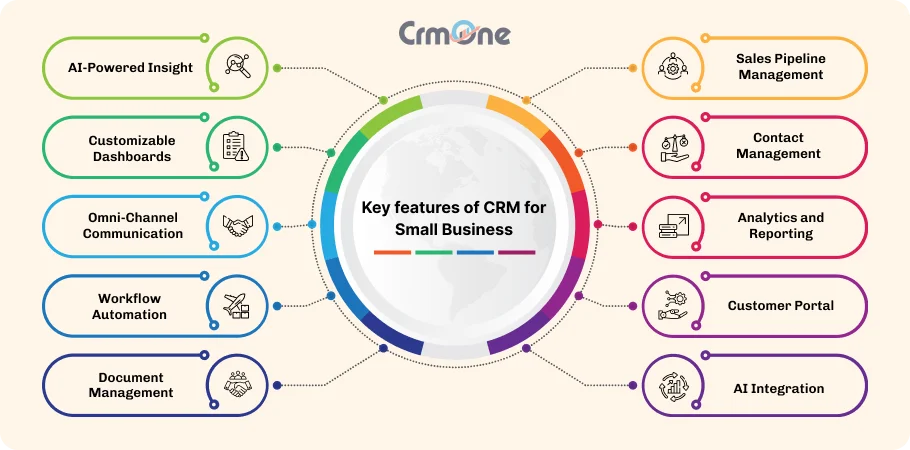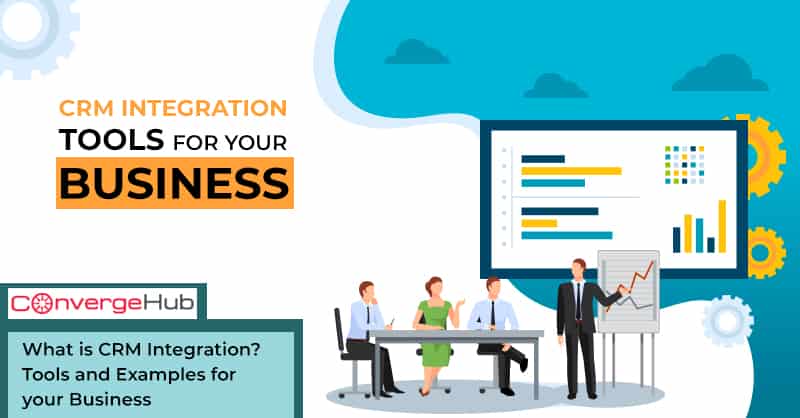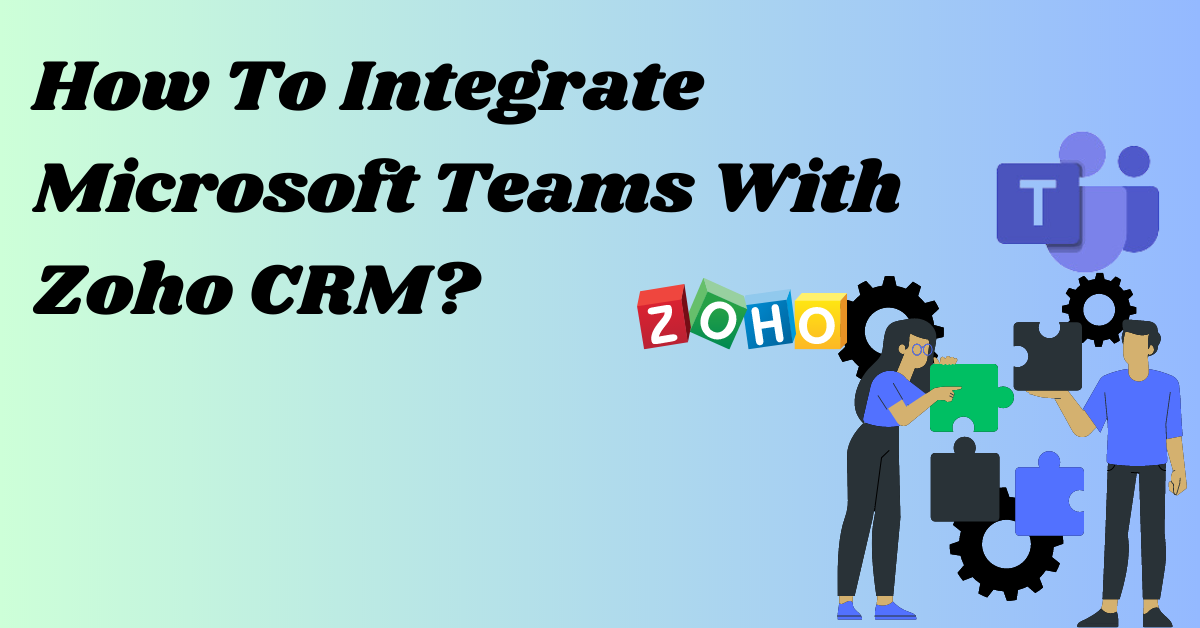Small Business CRM Security in 2025: Protecting Your Data and Growing Your Business

The world of small businesses is a dynamic one, constantly evolving with new technologies and challenges. One of the most critical aspects of running a successful small business in 2025 is data security, particularly when it comes to your Customer Relationship Management (CRM) system. Your CRM is the central nervous system of your sales, marketing, and customer service efforts. It houses sensitive information about your clients, their interactions with your business, and your overall business strategy. Protecting this data is paramount, not just for legal compliance, but for maintaining customer trust and ensuring the continued growth of your company. This article delves deep into the landscape of small business CRM security in 2025, providing a comprehensive guide to the threats, solutions, and best practices you need to know.
Understanding the Landscape: CRM Security Threats in 2025
The threat landscape is constantly shifting, and what was considered secure yesterday may not be secure today. Small businesses are particularly vulnerable because they often lack the resources of larger corporations to invest in robust security measures. In 2025, several key threats will continue to pose significant risks to your CRM data:
1. Sophisticated Phishing Attacks
Phishing attacks are not new, but they are becoming increasingly sophisticated. Cybercriminals are using advanced social engineering techniques to trick employees into divulging sensitive information, such as login credentials. These attacks often mimic legitimate emails and websites, making them difficult to detect. In 2025, expect to see more targeted phishing attacks that are tailored to your specific industry and even your individual employees. These attacks may leverage publicly available information to make them seem more credible.
2. Ransomware Attacks
Ransomware continues to be a major threat to businesses of all sizes. Attackers encrypt your data and demand a ransom payment in exchange for the decryption key. In the context of a CRM, a ransomware attack could cripple your sales, marketing, and customer service operations, leading to significant financial losses and reputational damage. The sophistication of ransomware is also increasing, with attackers often exfiltrating data before encrypting it, giving them additional leverage to pressure you into paying the ransom.
3. Data Breaches and Insider Threats
Data breaches can occur through various means, including vulnerabilities in your CRM software, weak passwords, and human error. Insider threats, whether malicious or unintentional, also pose a significant risk. A disgruntled employee or a compromised account could lead to the theft or exposure of sensitive customer data. This emphasizes the importance of robust access controls and employee training.
4. Supply Chain Attacks
Small businesses often rely on third-party vendors for various services, including CRM software, cloud storage, and IT support. Supply chain attacks target these vendors, compromising their systems and gaining access to your data. This is especially concerning in the CRM space, where many small businesses use cloud-based CRM solutions. Ensuring the security of your vendors is therefore crucial.
5. Advanced Persistent Threats (APTs)
APTs are sophisticated, long-term cyberattacks that are designed to infiltrate a system and remain undetected for extended periods. These attacks are typically carried out by state-sponsored actors or highly skilled cybercriminals. While APTs are often associated with larger organizations, small businesses can also be targets, particularly if they operate in a sector that is of strategic interest to attackers.
Essential Security Measures for Your CRM in 2025
Protecting your CRM requires a multi-layered approach that encompasses technical safeguards, employee training, and robust security policies. Here are some essential measures to implement:
1. Strong Password Policies and Multi-Factor Authentication (MFA)
Weak passwords are a major vulnerability. Enforce strong password policies that require employees to use complex passwords and change them regularly. Implement multi-factor authentication (MFA) for all CRM accounts. MFA adds an extra layer of security by requiring users to verify their identity through a second factor, such as a code sent to their mobile device. This makes it much more difficult for attackers to gain unauthorized access, even if they have stolen a password.
2. Regular Security Audits and Vulnerability Assessments
Conduct regular security audits and vulnerability assessments to identify weaknesses in your CRM system. This involves scanning your system for vulnerabilities, reviewing your security configurations, and assessing your overall security posture. Hire a security professional or use a reputable security assessment tool to perform these audits. Address any identified vulnerabilities promptly.
3. Data Encryption
Encrypt sensitive data both in transit and at rest. Encryption protects your data from unauthorized access, even if your system is compromised. Use encryption to protect data stored in your CRM database, as well as data transmitted between your CRM and other systems. Ensure your CRM provider offers robust encryption capabilities.
4. Access Controls and Permissions Management
Implement strict access controls to limit access to sensitive data based on the principle of least privilege. Grant users only the minimum level of access necessary to perform their job duties. Regularly review and update user permissions to ensure they remain appropriate. Use role-based access control (RBAC) to simplify the management of user permissions.
5. Data Backup and Disaster Recovery Plan
Implement a comprehensive data backup and disaster recovery plan. Back up your CRM data regularly and store backups in a secure, offsite location. Test your backup and recovery procedures periodically to ensure they are effective. Your disaster recovery plan should include steps to restore your CRM system quickly in the event of a data breach, system failure, or other disruptive event.
6. Security Awareness Training for Employees
Employees are often the weakest link in security. Provide regular security awareness training to educate employees about the latest threats and best practices. Train employees on how to identify and avoid phishing attacks, recognize suspicious emails, and protect sensitive data. Conduct phishing simulations to test employee awareness and identify areas for improvement.
7. CRM Software Updates and Patch Management
Keep your CRM software up to date with the latest security patches and updates. Software vendors regularly release patches to address vulnerabilities. Implement a patch management process to ensure that these patches are applied promptly. Consider using automated patch management tools to streamline the process.
8. Vendor Security Assessments
If you use a cloud-based CRM solution or rely on third-party vendors, conduct thorough security assessments of your vendors. Review their security policies, procedures, and certifications. Ask them about their data security practices, incident response plans, and data breach notification procedures. Ensure that your vendors meet your security requirements.
9. Incident Response Plan
Develop a comprehensive incident response plan that outlines the steps to take in the event of a security breach or other security incident. This plan should include procedures for containing the incident, investigating the cause, notifying affected parties, and restoring your system. Test your incident response plan regularly to ensure it is effective.
10. Compliance with Data Privacy Regulations
Comply with all relevant data privacy regulations, such as GDPR, CCPA, and other state and federal laws. These regulations require you to protect the personal information of your customers and provide them with certain rights regarding their data. Ensure your CRM system is configured to comply with these regulations. Consult with a legal professional to ensure compliance.
Choosing the Right CRM for Security in 2025
The CRM platform you choose plays a critical role in your overall security posture. When selecting a CRM in 2025, prioritize security features and capabilities. Here’s what to look for:
1. Security Certifications and Compliance
Choose a CRM provider that has achieved relevant security certifications, such as ISO 27001, SOC 2, and others. These certifications demonstrate that the provider has implemented robust security controls. Ensure the CRM platform complies with relevant data privacy regulations.
2. Data Encryption Capabilities
Ensure the CRM platform offers robust data encryption capabilities, both in transit and at rest. Look for support for industry-standard encryption protocols, such as AES-256.
3. Multi-Factor Authentication (MFA) Support
MFA is a must-have security feature. Choose a CRM platform that supports MFA for all user accounts.
4. Access Controls and Permissions Management
The CRM platform should offer granular access controls and permissions management capabilities, allowing you to restrict access to sensitive data based on the principle of least privilege. Look for role-based access control (RBAC) features.
5. Audit Logging and Monitoring
The CRM platform should provide comprehensive audit logging and monitoring capabilities. This allows you to track user activity, identify suspicious behavior, and detect potential security breaches. Look for features such as security dashboards and real-time alerts.
6. Security Updates and Patch Management
Choose a CRM provider that has a strong track record of providing timely security updates and patches. Inquire about their patch management process and how quickly they respond to security vulnerabilities.
7. Data Backup and Recovery Features
The CRM platform should offer robust data backup and recovery features, including automated backups and the ability to restore data quickly in the event of a disaster. Consider the provider’s data backup and recovery service level agreements (SLAs).
8. Vendor Reputation and Security Practices
Research the CRM provider’s reputation and security practices. Read reviews from other users and investigate any past security incidents. Assess the provider’s overall commitment to security and data protection.
Future Trends in CRM Security
The future of CRM security is likely to be shaped by several key trends:
1. Artificial Intelligence (AI) and Machine Learning (ML)
AI and ML will play an increasingly important role in CRM security. AI-powered security tools can detect and respond to threats in real-time, analyze user behavior to identify suspicious activity, and automate security tasks. Expect to see more AI-driven threat detection and prevention features in CRM platforms.
2. Zero Trust Security
Zero trust is a security model that assumes no user or device can be trusted by default, regardless of whether they are inside or outside the network perimeter. This model requires strict verification for every user and device before granting access to resources. Zero trust principles are becoming increasingly important in CRM security. This means verifying every user and device that accesses your CRM data.
3. Blockchain Technology
Blockchain technology could be used to enhance the security and integrity of CRM data. Blockchain can be used to create immutable audit trails, track data changes, and prevent data tampering. This could be especially useful for verifying data integrity and ensuring compliance with data privacy regulations.
4. Increased Automation
Automation will play a greater role in CRM security, especially as organizations grapple with the increasing complexity of security threats. Automated security tools can help streamline security tasks, such as vulnerability scanning, patch management, and incident response. This will free up security professionals to focus on more strategic initiatives.
5. Integration of Security and CRM
CRM platforms will become more tightly integrated with security tools and technologies. This will enable businesses to manage their security posture more effectively and respond to threats more quickly. Expect to see more CRM platforms offering built-in security features and integrations with leading security vendors.
Best Practices for Small Businesses
Implementing a robust CRM security strategy is not just about technology; it’s about fostering a culture of security within your organization. Here are some best practices for small businesses:
1. Prioritize Security from the Start
Make security a priority from the very beginning. Integrate security considerations into your CRM selection process, implementation, and ongoing operations. Don’t wait until after a security incident to address your security vulnerabilities.
2. Develop a Security Policy
Create a comprehensive security policy that outlines your security objectives, procedures, and responsibilities. This policy should be communicated to all employees and regularly reviewed and updated. This document should be regularly updated to stay compliant and relevant.
3. Train and Educate Your Employees
Invest in ongoing security training for your employees. Provide regular updates on the latest threats and best practices. Make security awareness a part of your company culture. This is a continuous process, not a one-time event.
4. Conduct Regular Security Assessments
Regularly assess your security posture to identify vulnerabilities and address weaknesses. Use vulnerability scanners, penetration testing, and other security assessment tools. These assessments should be scheduled at regular intervals.
5. Stay Informed About the Latest Threats
Stay informed about the latest security threats and trends. Subscribe to security newsletters, read industry publications, and attend security conferences. Knowledge is power in the fight against cybercrime. The more you know, the better you can protect your data.
6. Foster a Culture of Security
Create a culture of security within your organization. Encourage employees to report suspicious activity and take security seriously. Make security a shared responsibility. Security should not be the responsibility of only one person or department.
7. Review and Update Your Security Measures Regularly
Security is not a set-it-and-forget-it process. Regularly review and update your security measures to ensure they remain effective. The threat landscape is constantly evolving, so your security measures must also evolve. This includes keeping up with software updates and patches.
Conclusion: Securing Your Future with CRM Security
In the dynamic business environment of 2025, robust CRM security is no longer optional; it is a fundamental requirement for success. By understanding the evolving threat landscape, implementing essential security measures, choosing the right CRM platform, and adopting best practices, small businesses can protect their valuable customer data, maintain customer trust, and foster sustainable growth. The investment in CRM security is an investment in your future, safeguarding your business from threats and enabling you to focus on what matters most: serving your customers and achieving your business goals. Proactive security measures are critical, so don’t delay. Start implementing these strategies today to safeguard your business and thrive in the years to come.




